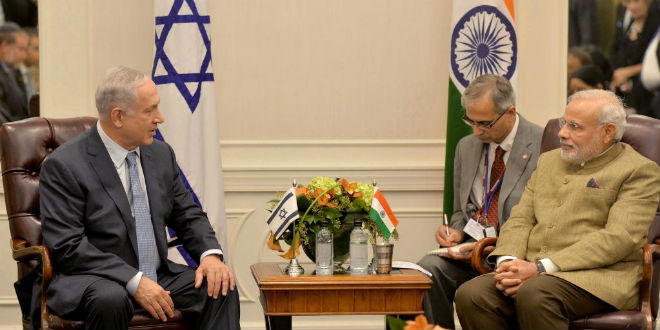India has stepped up its final role to approving the Israeli deal worth $800 million (Rs 5,700 crore) of two more “Phalcon” airborne warning and a control system (AWACS) aircraft, which comes after both nations’ leaders marked Rs 4,577 crore deal for air defence radar system with Israel.
Israel being India’s one of the top arms suppliers, the armed forces are looking forward to inducting an additional “Heron” surveillance and also armed drones including “Harop” killer unmanned aerial vehicle, behave as a cruise missile by exploding into the enemy’s radar and other of its targets, from the country.
With Israel’s Prime Minister Benjamin Netanyahu expected visit to India in February, it is also trying to push for the “Spike” anti-tank guided missiles (ATGMs) for a renewed deal. Israel’s move comes after India has canceled the proposal in 2017 of Rs 3,200 crore deal for about 8,356 medium-range Spike missiles, including 321 launchers as well as 15 simulators after the DRDO said it has the capability to deliver more technologically advanced man-portable ATGM within couples of year, according to Times Of India news reports.
In another India-Israel mega deal which was estimated at Rs 12,640 crore, the Israeli company Elbit Systems is competing with French firm Nexter Systems in order to supply 400 towed 155mm artillery gun systems to India, further followed by another 1.180 guns to be made in New Delhi.
Talking about the present, India has recently signed Rs 4,577 crore worth deal with Israeli aerospace industries for about 66 fire control radars including maintenance transfer of technology. The tracking radars and 3D surveillance will further replace the old flycatcher radar systems, present with army’s air defence corps.
Afterward, the finance minister will examine the Indian Air Force’s pending bid to induct two more AWACS along with Israel’s Phalcon radar systems, after being examined by the defence minister of the country. A source said, “The Cabinet Committee on Security, of course, will have to give the final nod.”
IAF had earlier, in 2009-2011, inducted the first three Phalcon AWACS under a $1.1 billion deal marked by Russia, India, and Israel in 2004. Though the finance minister has presented an objection regarding “the high costs” in the contract for two more AWACS, which have been now “brought down” through negotiations, sources said.
The early-warning radar system, AWACS, could detect and further track any incoming fighters, drones, and cruise missiles much earlier than that if ground-based radar can do, and also could detect friendly fighters during ongoing combat with foe’s aircraft.

